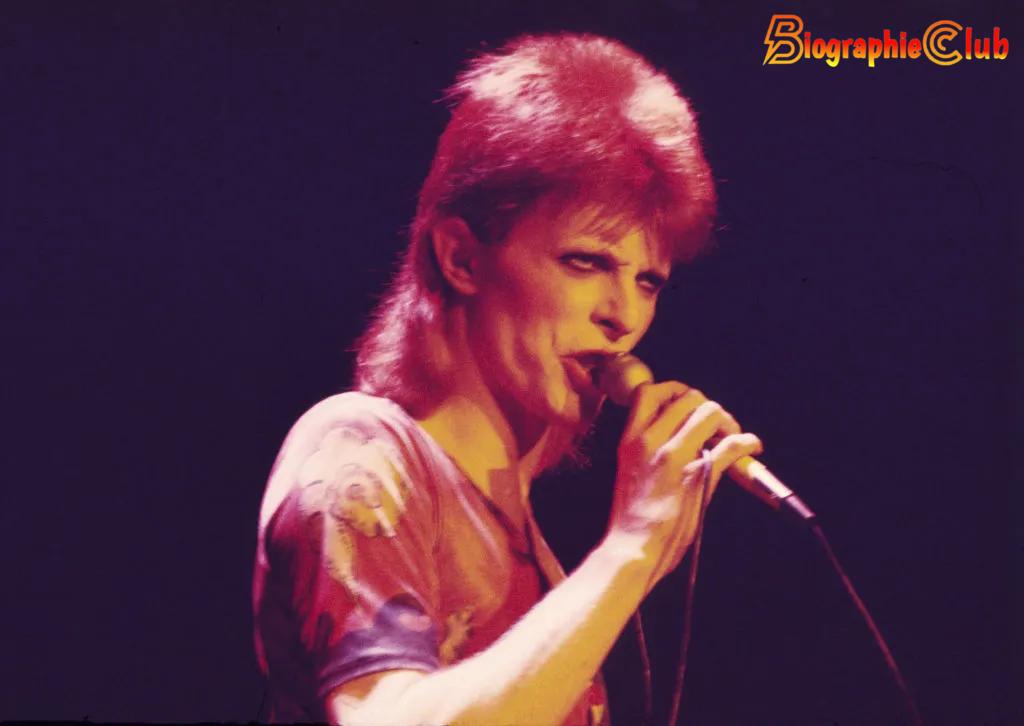January 10, 2016, was a day that left music lovers and fans around the world heartbroken as they learned of the passing of the legendary musician David Bowie, who died at the age of 69 after a courageous battle with liver cancer. Just two days earlier, on January 8, Bowie had released his final album, *Blackstar*, coinciding with his 69th birthday—a poignant moment that now represents the end of an era and the beginning of a lasting legacy. As we reflect on what would have been his 77th birthday this year, it’s important to recognize Bowie’s remarkable impact not only on music but also on LGBTQ+ culture, where he carved out a space for acceptance and creativity.
John, I’m Only Dancing
One of Bowie’s breakthrough moments came with the release of his song “John, I’m Only Dancing” in 1972. The track, often celebrated as a bisexual anthem, helped to express feelings and experiences that many people in the LGBTQ+ community were facing at the time. With lyrics that embodied a sense of freedom and exploration, Bowie opened doors for conversations about love and identity, inspiring countless artists and fans to embrace their true selves.
The Birth of Ziggy Stardust
Bowie introduced the world to Ziggy Stardust in 1971, a character that would become a cultural icon. Ziggy represented not just a new sound but a bold expression of gender fluidity and self-identity. The flamboyant alter ego challenged societal norms, showing that it was okay to stand out and celebrate differences lavishly. Ziggy Stardust remains a pivotal point in the timeline of LGBTQ+ representation in music, and its influence continues to empower those seeking to be themselves.
Dating Romy Haag
In the mid-1970s, Bowie formed a romantic relationship with Dutch transgender actor Romy Haag. Their relationship was significant during an era when conversations around gender and sexuality were largely stigmatized. By openly dating Haag, Bowie showcased that love transcends traditional gender norms, forging a path for future discussions about transgender issues and representation in the media.
Making Bisexuality Famous
Historically, Bowie is noted for his public acknowledgment of his bisexuality in 1976, a bold move at a time when such topics were rarely discussed. This declaration not only validated the identities of many but also emphasized the importance of being open and honest about one’s sexuality. Through both his art and his life, Bowie made bisexuality visible and respectable, becoming a hero for many people exploring their identities.
Shouting Out to All Identities
One of his classic hits, “Rebel Rebel,” features lyrics that explore themes of gender and androgyny, asking listeners to think beyond labels. The line, “You’ve got your mother in a whirl, she’s not sure if you’re a boy or girl,” invites everyone to challenge societal expectations and to embrace their individuality. Bowie’s fashion choices and stage presence—bold suits, and vibrant patterns—have influenced many, including modern icons like Harry Styles.
Tales of the Mime Costume
Fashion was very much a part of Bowie’s messaging. In 1968, he made a memorable appearance in mime makeup at a club, long before it became a common choice for performers. This act not only celebrated creativity and individuality but also hinted at the modern drag makeup we see today. Bowie didn’t just break the mold; he redefined what it meant to express oneself through art.
Wearing His Heart on His Sleeve
Fans were stunned when Bowie was seen draping his arm around guitarist Mick Ronson on *Top of the Pops* in 1972. This affectionate display of friendship sent waves of excitement throughout the LGBTQ+ community, signaling a new era where artists could love and support each other openly without fear. Bowie’s persona embodied kindness and genuine acceptance, paving the way for future stars to express their feelings candidly.
A Message to Live Easily
As Bowie himself once said, “Make the best of every moment. We’re not evolving. We’re not going anywhere.” This quote encapsulates his essence, urging fans to seize the day and live authentically. It reminds us of Bowie’s belief in the importance of embracing life fully, something that continues to resonate with his devotees all these years later.
Bold Performances That Shook the Stage
Bowie was known for his theatricality on stage, which sometimes included audacious performances such as mock sexual acts. These actions prompted discussions about sexuality and boundaries, stirring public opinion and challenging norms in ways that few other artists had dared to do. His willingness to tackle these subjects head-on made his concerts exhilarating and groundbreaking.
Publicly Embracing His Identity
In 1972, Bowie made headlines when he came out as gay in a well-publicized interview. This bold statement not only transformed his career but also shone a spotlight on the LGBTQ+ community, encouraging many to embrace their true identities. His bold declarations provided a sense of validation to those who felt they were living on the fringes of society.
| Date | Event |
|---|---|
| 1970 | Introduces Ziggy Stardust |
| 1972 | Releases “John, I’m Only Dancing” and performs on *Top of the Pops* |
| 1976 | Publicly identifies as bisexual |
| 2016 | Passes away two days after releasing *Blackstar* |
David Bowie’s legacy is immense, and his contributions to culture, particularly in the realm of LGBTQ+ rights and visibility, are profound. He was not just a musician; he was a beacon of hope for many looking to find their identity in a world that often asked them to conform. As we commemorate his journey, let us remember the fearless spirit he embodied and strive to carry it forward.

